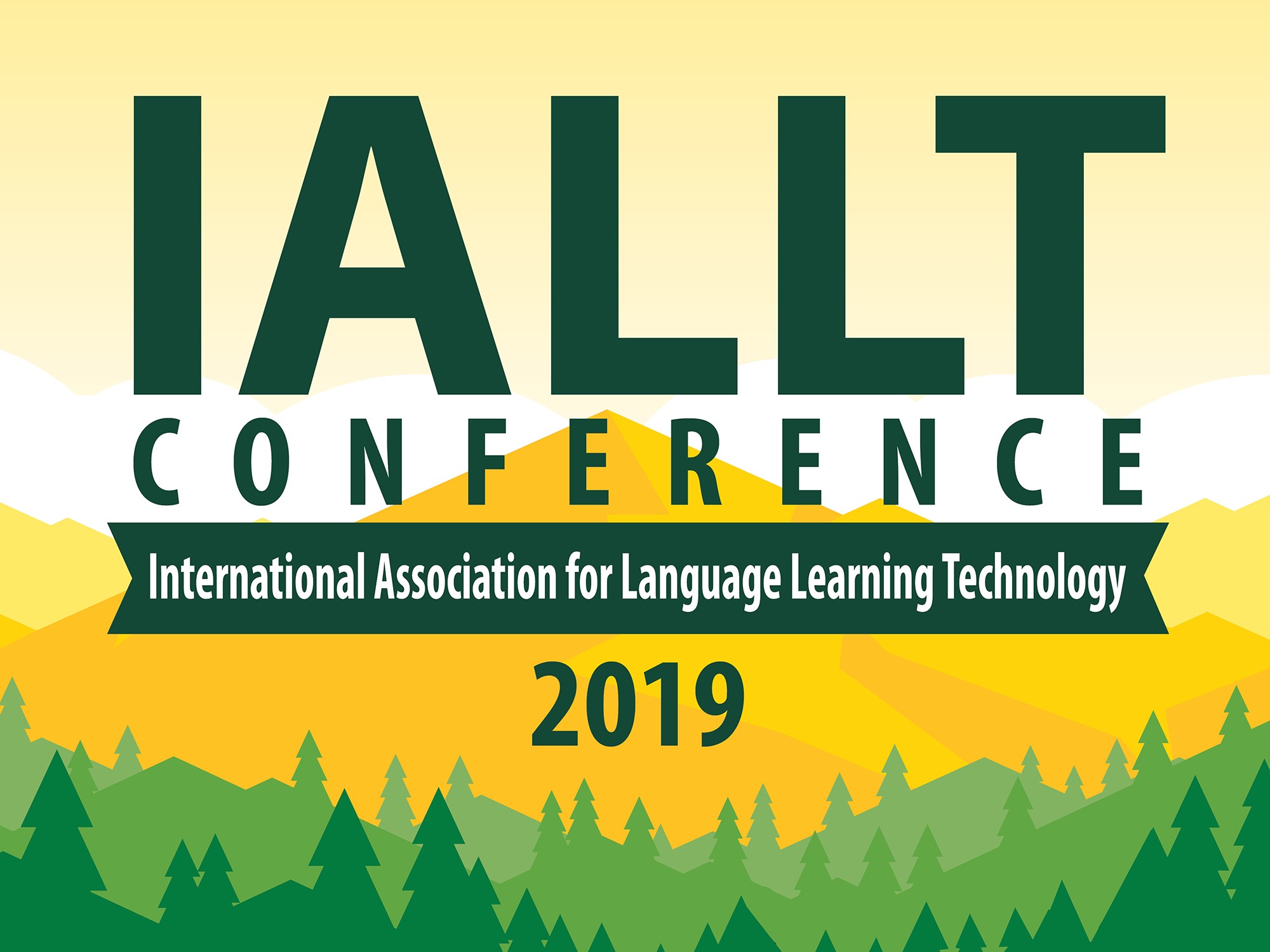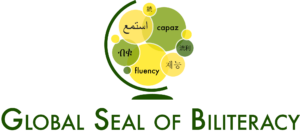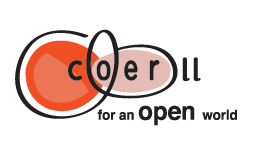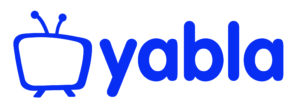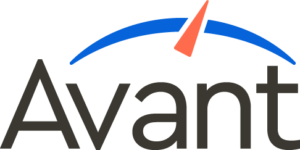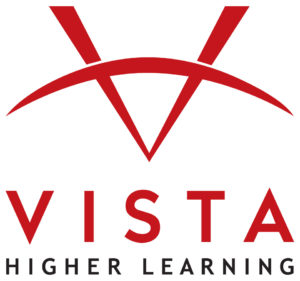IALLT Workshops will take place in McKenzie Hall on Wednesday and Saturday. Conference registration is required and there is an additional charge of $25 per workshop.
Crafting Workshops will take place in Erb Memorial Union at the Craft Center on the ground floor and are open to conference attendees and family members age 18 and older. Closed-toe shoes are required and space is limited. There is an additional charge of $30 or $35, depending on which Crafting Workshop is selected.
Wednesday, June 19
Round 1
A. Technology, Conscious, and Agency: Deconstructing Digital Design
Mandy Gettler and Christopher Daradics (Center for Applied Second Language Studies, University of Oregon)
9:30am-11:30am
This workshop will deconstruct digital design in order to reconstruct it in service of language learning. Participants will engage with a mobile app prototype that helps users participate more mindfully with technology and a design challenge in which participants design their own digital mindfulness activity. The session will conclude with an open discussion on how digital literacy skills can help students engage in language learning intentionally and autonomously.
By attending this session, participants will gain a deeper understanding and working knowledge of how to integrate design principles into best practices for computer-assisted language learning.
B. Language Learner Coding: Supporting Teacher Awareness and Skills
Joy L. Egbert and Seyed Shahrokni (Washington State University)
9:30am-11:30am
Governments, employers, parents, and other education stakeholders have been calling for years for language learners to acquire critical thinking and technology skills in addition to language and content so that these learners can access better opportunities. This challenge can be met in part by teachers supporting student awareness of and skills in coding; however, they cannot do this if they do not know how themselves. This workshop teaches the basics of three different types of coding: color coding (Ozobots), block programming (Scratch), and basic JavaScript (CodeMonster). It also addresses how and why coding tasks can be incorporated into language lessons.
C. Crafting: Block Printed Cards
University of Oregon Craft Center
9:30am-11:30am
Learn to carve your own design or use some of ours to make fun, customized greeting cards on high-quality paper. (age 18 and older, closed-toe shoes required, maximum 12)
Round 2
D. ANVILL 3.0 and the Quest for More Meaningful Interactions
Jeff Magoto, Norman Kerr, and Martha Lee (University of Oregon)
1:00pm-3:00pm
In this workshop, we will learn to use the latest version of the free and open-source software, ANVILL 3.0. This new version, rebuilt from the ground up, is optimized for pedagogical contexts that are fluid (F2F-hybrid-online) and for teachers who have very little time for authoring. One innovation is a seamless weaving of ANVILL’s strengths as a media tool with the interactivity of H5P apps. The combination means that speech or video are no longer stumbling blocks as input or output tasks, and that content of all types can co-exist easily on a page.
E. From Virtual Reality to a Multimodal Task – Developing Virtual Reality Environments for the Multimodal Language Classroom
Simon Zuberek (Columbia University)
1:00pm-3:00pm
Einstein once said that “reality is merely an illusion, albeit a persistent one.” This workshop will investigate how to turn this “illusion” into a didactic tool. Starting with 180 degree photos, assembling them into photospheres, and using them to develop basic virtual environments, we will explore how to create multimodal, virtual learning experiences, tailored for the contemporary language classroom. To that end, we will rely on freely available and intuitive online tools comprising Google’s VR suite. The goal of this workshop is to help its participants develop didactically oriented VR experiences, culminating in the creation of coherent didactic virtual spaces.
F. Crafting: Fused Glass Dish
University of Oregon Craft Center
1:00pm-3:00pm
Arrange cut glass pieces to make an abstract, illustrative, or mosaic design; we will fire the glass to fuse it, then slump it into a low dish shape for use in your kitchen or as a small decorative bowl. Finished pieces will be shipped to your home. Additional $5.00 cost to cover packaging and mailing costs. (age 18 and older, closed-toe shoes required, maximum 8)
Round 3
G. Make Your Own Language Adventure: Increase Language Engagement Beyond the Classroom with Open Source Software Based Interactive Stories and Games
Kathrin Kaiser (Center for Applied Second Language Studies, University of Oregon)
3:30pm-5:30pm
Interactive fiction and story-based language adventures offer great potential to engage learners in learning experiences that imitate real-world settings, providing opportunities for interaction in culturally meaningful contexts. In combination with open-source software, interactive stories represent compelling language learning tools that learners can engage with beyond the classroom and on their own time – as readers, players, or even developers.
This workshop introduces participants to Twine, an open-source software tool for the development of story-based games. Participants will examine opportunities to leverage the tool’s potential for language learning, and for creating compelling, interactive language learning experiences.
H. Thinking About Syncing? Thoughtful Technology Integration to Support World Readiness and Interculturality
Catherine Ousselin (Mount Vernon High School)
3:30pm-5:30pm Changed to 50 minute session on Friday
Harness and integrate the multitude of thoughtful and engaging technology tools to connect the links between the World-Readiness Standards, Communication Modes and Proficiency Benchmarks, ACTFL’s Statement on Technology, and 21st Century Skills. Participants will explore and interact with tools that support speaking, listening, and writing on a variety of platforms. Topics include Digital Storytelling, Social Media, and Google Apps for World Languages. Laptops and mobile devices encouraged.
I. Crafting: Stamped Keychains and Dog Tags
University of Oregon Craft Center
3:30pm-5:30pm
Practice stamping, decorating, & finishing copper and brass ID tags for keys, luggage, necklaces, etc. (age 18 and older, closed-toe shoes required, maximum 10)
Saturday, June 22
Round 4
J. DIY Virtual Reality: Thinglink and Google Tour Creator
Laura Renard and Barb Bertoldo (Saint Mary’s Hall)
12:30pm-2:30pm
With many predesigned expeditions and virtual field trips becoming available for teachers and students, this hands-on workshop will focus on two different platforms – Thinglink and Google Tour Creator – as mediums for creating intentional, personalized experiences. Participants will briefly look at current trends in virtual reality, discussing how to effectively integrate VR into the classroom and participating in a mock lesson, and then will evaluate and explore these two tour creation tools collaboratively in order to create unique trips. Participants are highly encouraged to bring their own 360 degree images to use during this workshop!
K. Prepare Globally Competent Learners: Innovative Techniques Using Technology
Lauren Rosen (University of Wisconsin), Catherine Ousselin (Mount Vernon High School)
12:30pm-2:30pm
Experience techniques based on core practices to build communicative proficiency while exploring means to investigate, explain, and reflect on the practices, products, and perspectives of other cultures. Using technology, participants encounter ways to foster global competence in their own learning environments. Presenters model activities and practices assisting participants in developing some of their own activities that prepare learners to be more globally competent.
Participants will:
-Participate in activities that foster global competence using core practices
-Describe how technology supports building global competence
-Name the 6 core practices
-Intentionally develop activity ideas based on core practices in which they are weakest
Round 5
L. Making Sense: Inspiring Learning Through Digital Content Creation and Analysis
Stephanie Knight and Christopher Daradics (Center for Applied Second Language Studies, University of Oregon)
3:00pm-5:00pm
The ubiquity of interactive, dynamic, low-cost, digital language analysis tools (e.g. word clouds and word trees) and language texts in digital environments is vast but oftentimes unexplored by language educators. This workshop will guide participants to explore these tools, analyze instances of their use, and design classroom activities to promote learner inquiry and language creation and play. Time will be alloted at the workshop’s close for participants to share the activities that they have conceptualized with the group.
M. Green Screen Videos as Engaging Language Tasks
Joy L. Egbert, Seyed Shahrokni, and Mohamed ElHess (Washington State University)
3:00pm-5:00pm
Teachers may think that creating green screen videos takes expert technology know-how and cutting-edge resources. Not so! Participants in this session will have a hilarious time learning to create simple green screen photos and videos. The focus will be on helping engage students and promote language learning. They will leave with examples and resources to use in their classrooms on “Monday.”

